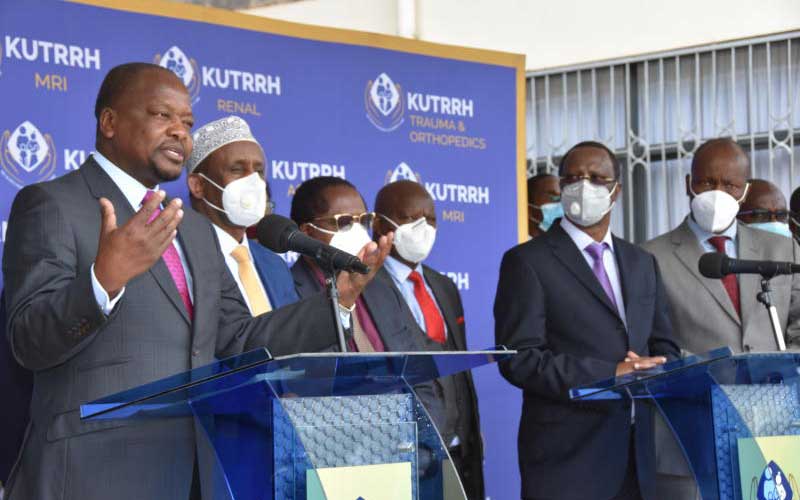×
The Standard e-Paper
Home To Bold Columnists

Health Cabinet Secretary Mutahi Kagwe (left) with County governors yesterday at Kenyatta University Teaching, Referral and Research Hospital where they held a consultative meeting on cancer-management. [Nicholas Nthenge, Standard]
Health Cabinet Secretary Mutahi Kagwe has assured the public that Health and Education ministries are working together to ensure strict protocols are observed before re-opening of schools.